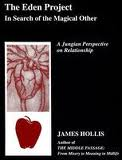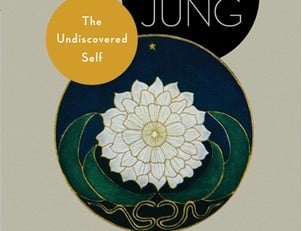The Eden Project: In Search of the Magical Other by James Hollis
 A book review by Tasha Tollman
A book review by Tasha Tollman
In the Eden Project, Jungian Analyst James Hollis, examines the psychodynamics of relationships. Not as a practical guide on how to fix relationships but as a hard hitting examination of the myth of romantic love, the myth that a “Magical Other” will give us comfort from this world, love us eternally, complete us. As Hollis himself says “It’s premises may be disappointing to some and as a matter of fact I don’t care much for them myself, but they are, I believe, more practical and more ethical than the many alternatives that float through our popular culture” (p.12) At this stage, I need to confess that my gut tightened, I’ve never thought of myself as a romantic, I’m not into candlelight dinners for two or looking deeply into the eyes of my lover but was I ready to expose my love relationship to the harsh light of reality, to look at my deepest fantasies about the relationship?
Recalling Jung’s maxim that, unawareness is the greatest sin and that many neuroses, originate in unawareness, I read on, “Since much of our relationship to ourselves operates at an unconscious level, most of the drama and dynamics of our relationship to others and to the transcendent is expressive of our own psychology. The best thing we can do for our relationships with others, and with the transcendent, then is to render our relationship to ourselves more conscious.” (p.13)
Since part of growing up is to experience wounding by the world and learn to adapt to this wounding, Hollis begins the exploration of relationships by examining the wounds of engulfment (the wound of too much) and abandonment (the wound of too little) and the coping behavior that is adopted as a result of these wounds. This chapter offers valuable insight into the psyche of the young child, how we acquire a sense of self and our search for identity.
Hollis’ gift of translating difficult psychological concepts into accessible, fascinating and heuristic text is clearly evident in chapter two, with his exploration of Marie-Louise von Franz’s fivefold process of projection, complexes and participation mystique. I was completely hooked at this stage of the book, finding myself intrigued by my answers to Hollis’ questions of “What does this say about me?” and “What am I asking of this Other that I ought to be doing for myself?” (p.57)
In Chapter three, the underlying premise of the book, “namely that one can achieve no higher or better relationship with the Other than one has achieved with oneself” (p.74) is explored as Hollis brings us face to face with the following predicates: “What do we know about ourselves (the unconscious project), or will not face in ourselves (the shadow), will be projected onto the other. We project our childhood wounding (personal pathology), our infantile longing (the narcissistic going home agenda), and our individuation imperative onto the Other. Since the Other cannot, and should not, bear responsibility for our wounds, our narcissism or our individuation, the projection gives way to resentment and the problem of power. The only way to heal a faltering relationship is to render our going home project conscious and take personal responsibility for our individuation.” (p.74)
The chapters that follow deal with becoming conscious of our Eros wounds, Eros in organizations and spirituality and soul, all very thought provoking but perhaps, as anticipated by Hollis himself, a “little too intellectual, too rational, too demanding, too cynical…” (p.138), well at least for my romantic soul. And yet the beauty of Hollis’ writing, the wonderful addition of poetry throughout the book and Hollis’ closing chapter reveals, I believe, that he too is at heart a romantic. A romantic who believes in love that helps us grow, that moves us towards our journey of individuation. “As great as the gift of caring and compassion may be, the ultimate gift to any relationship is the willingness to dialogue with the Other, which, in turn, can lead to individual enlargement. Dialogue with the Other, however unpleasant or painful, is the catalyst for individuation.” Or perhaps once again I am projecting my need for a kind, caring, romantic, Magical Other. You decide!
Psychologically this book will challenge the way you view your most intimate relationships and if like me you are starry eyed about love and all its passion, will leave you questioning, wondering, and pondering the role of love. It is a book that challenges the way we view romantic love and forces us to come face to face with all our projections and search for the Magical Other. It is not a comfortable read and at the end I still find myself tenaciously clinging to my projections and yet…
Find this book at Estoril Books or at www.kalahari.com




Comments (3)
One of the best books ever.
Thank you for your introductory review, Tasha.
Where can I buy the book in Cape Town or Johannedburg?
I would try Exclusive Books or otheriwse online.